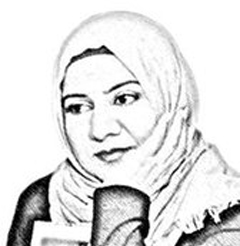December 10 is celebrated as International Human Rights Day by the United Nations. According to the UN, it is the day to ‘recognise human rights and speak up against the unspeakable’. Several human rights violations took place over the past few years across the world. War against Yemen, war in Syria, civil war in Iraq and Libya, presence of American troops in Afghanistan and terror incidents in this land and beyond, rapidly emerging extremism in different countries of Africa, heinous crimes by Boko Haram in Nigeria, abduction of Nigerian girls are some of the incidents that took place in the last few years.
It won’t be wrong to say that the circumstances we face today are the largest humanitarian crisis of the history after 1945. According to the UN Humanitarian Chief Stephen O’Brien, more than 20 million people faced the threat of starvation and famine in Yemen, Somalia, South Sudan and Nigeria. UNICEF has already warned that 1.4 million children could starve to death this year. This is an alarming situation about which we should no longer stay silent. In this humanitarian crisis, women become multidimensional victims. Violence caused by instabilities affects women the most.
According to The Independent, almost 100 girls under or around the age of 12 in the Central African Republic have said they were sexually abused by international peacekeepers, with three claiming they were tied up and forced to have sex with a dog by a French military commander. On Oct 11 2017, according to Amnesty International, a young woman was again drugged and raped allegedly by Mauritanian peacekeepers in Central African Republic.
UN troops were accused of brutal sexual abuse of locals in 2011. A group of more than 100 Sri Lankan soldiers allegedly ran a child sex ring involving nine Haitian kids, the youngest aged 12. Other troops were implicated in trading food or other goods with desperate Haitians in exchange for sex. Most of the soldiers were simply sent home to their native countries. Only a handful was ever charged with a crime and even fewer found guilty. “UN troops not only raped a young boy but put recorded it and put on social media,” says Pierre-Louis, an associate professor of political science at Queens College CUNY. Another similar article was published again by The Independent in 2015 claiming that UN peacekeepers sexually abused hundreds of women and minors in Haiti in exchange of food and medicines.
In the North of Sudan, Nuer women and girls were raped by Sudanese army personnel, but UN peacekeepers turned a blind eye to the incident. According to a survey, every third woman in Latin America experience sexual assault till the age of 18. Violence against the Rohingya Muslims in Myanmar has led to more than 300,000 people fleeing to Bangladesh in the past three weeks. Security forces and local militia reportedly burnt villages, shot civilians and raped women. Myanmar has denied access to human rights investigators. Sexual assaults and rapes appear to have been accepted as a collateral damage of war.
UN troops were accused of brutal sexual abuse of locals in 2011. A group of more than 100 Sri Lankan soldiers allegedly ran a child sex ring involving nine Haitian kids, the youngest aged 12. Other troops were implicated in trading food or other goods with desperate Haitians in exchange for sex
Sexual violence in Myanmar, Africa and Latin America are the prime examples that rape is still being used as a tool of glory in conflict zones. United Nations has done much in recent years to help raise awareness and trigger action against sexual violence in conflict-ridden areas, but the UN has unfortunately has not even been successful in protecting its own employees from sexual assaults and harassment. In 2009, Banki Moon the then Secretary General of the United Nations said that sexual harassment remains a ‘scourge’ in his organisation.
In 2009, Pakistani civil society activist Dr Fouzia Saeed faced sexual harassment over a long period of time when she was working for UNDP Pakistan. After the #MeToo campaign against sexual harassment initiated in 2017, Brussels-based Pakistani journalist Meera Ghani and Chatham House based climate change lawyer Farhana Yamin opened up about their experience of sexual harassment. Meera Ghani said she quit working with international climate movement after being subjected to sexual harassment. It shows how the organisations supposed to work against ant-women practices themselves fail to act against the perpetrators present in their own ranks. Plans against sexual harassment and assaults made by United Nations and other prestigious organisations have therefore yielded no results. As a matter of fact, societies all over the world are misogynistic and patriarchal and the objectification of women is a norm. This is why the incidents of violence against women continue unabated. The power imbalance within genders makes it very intimidating for individual women to challenge sexism and abusive behaviour without risking their jobs. There’s a long way to go before this gender balance gap is filled.
The writer is a journalist based in Belgium and is a, writer, teacher, translator, human activist, focusing on human rights, gender equality and peace
Published in Daily Times, January 8th 2018.
